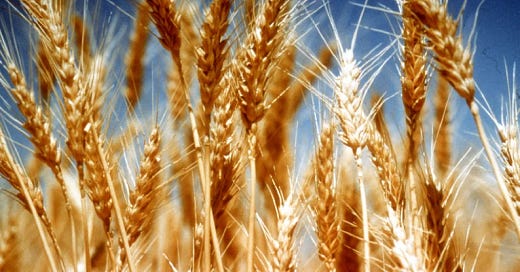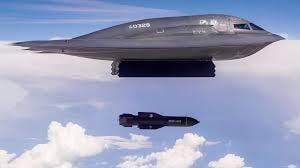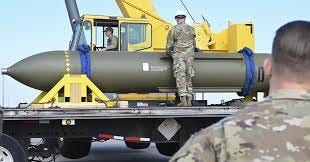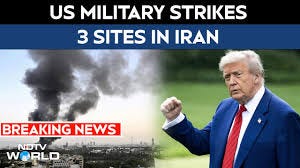Einkorn Wheat, B2 (not a vitamin), and William Faulkner
What did the judge say when a skunk wandered into the court room? Odor in the Court!
On My Mind, 06222025: As the sun rises today, as it will for at least another five billion years, I got up and made comfort food, biscuits, with some Einkorn wheat flour grown on a farm near Gallatin, Missouri, about 100 miles north of Knob Noster, Mo, the home of Whiteman AFB and the B2 Bomber group used in yesterday’s attack on Iran. It seems odd as I think about it. My biscuits, made with the most primitive domesticated wheat on earth, Triticum monococcum, which remains, after 10,000 years, still in an unmodified form and known today as Einkorn wheat, were warm, nutty, and deliciously different. Harvested initially by Neolithic hunter-gathers about 30,000 years ago in the Fertile Crescent, wild-growing Triticum boeoticum was selectively bred, perhaps more accidental than scientific, by these hunter-gathers over 20,000 years to develop Triticum monococcum, Einkorn wheat. Einkorn is one of the earliest domesticated wheats in human history and remains unmodified after 10,000 years (note: modern wheats have 42 chromosomes, Einkorn has 14). It is remarkably low in gluten, has more protein than modern wheat, and is rich in vitamins/minerals, and antioxidants. Yesterday, the US bombed Iran, a part of the Fertile Crescent, where the wild T. boeoticum was gathered, and early farmers domesticated the T. boeoticum into Einkorn wheat. Yesterday, the President ordered the USAF and the US Navy to bomb an area where Einkorn wheat came to be 10,000 years ago. This seems oddly relevant to me.
As one who detests violence toward humans by humans, I naturally lament all destructive violence, even military violence. Nonetheless, as a military B.R.A.T., I understand Washington’s comment in the early days of our nation, “To be prepared for war is the most effective means of preserving the peace.” Douglas MacArthur elaborated on this much later, saying, “The soldier above all others prays for peace, for it is the soldier who must suffer and bear the deepest wounds and scars of war.” I also understand the overwhelming obligations a nation, especially a mighty nation, has to reserve military action as a last resort when all other options are exhausted. Moreover, I understand that the citizens of our country must demand that our leaders strictly adhere to the laws and values of our country when military action is considered. My father, a career military person, once told me, “Son, my job is to obey all lawful orders. Your job is to make sure I am never faced with an unlawful order issued by the civilian leadership.” It seems I have some work to do.
A few questions:
1) Except for imminent invasion, I believe the President of the United States must either await a declaration of war by Congress or engage in dialogue with congressional leadership from both parties. It is my understanding that a) a declaration of war has not been issued by Congress, b) there is no evidence of an imminent invasion of the US by Iran, and c) appropriate congressional leadership was not informed or engaged before this billion-dollar bombing raid on Iran. Does that make this action, while perhaps effective and, at least by some, thought necessary, nonetheless illegal?
2) If an illegal action (see #1 above), is the order to execute issued by the President to the Joint Chiefs of Staff likewise illegal? If the order is unlawful, under the Uniform Code of Military Justice (UCMJ), does an officer, especially a general officer, have an obligation to disobey an order that is manifestly illegal or violates the Constitution and/or relevant statutes?
3) Is a soldier, officer or enlisted, subject to punishment for obeying an unlawful order?
4) Are elected members of Congress subject to punishment for failing to exercise his or her oath of office?
5) Under SCOTUS, Trump v. United States, No. 23-939, if the actions taken were illegal, is the President immune from prosecution for issuing an unlawful order to attack a sovereign nation without proper authority from Congress? Acknowledging the possibility (but practical impossibility) of impeachment, does the effect of the SCOTUS decision essentially place the President above the law?
6) Did President Trump initiate the action against Iran for the benefit of the immediate and direct defense of the United States against invasion, or was the US military being used to defend Israel, a defense necessitated by recent pre-emptive actions taken by Israel against Iran?
Einkorn wheat represents a giant of continuity and consistency in the agricultural world. In a time of intense agronomical experimentation—genetic modification and changing varieties—Einkorn wheat represents stability, both genetically and as a crop. For thousands of years, it has persisted in a stable form and continues to produce a healthy product of good value. To borrow from William Faulkner, Einkorn wheat has not merely endured; it has prevailed. This quote of Faulkner comes from his 1950 Nobel Prize acceptance speech. In talking about the human spirit, he noted it comes from humanity’s possession of a soul. This soul, he said, is “capable of compassion, sacrifices, and endurance.” Faulkner notes in the speech that “the basest of all things is to be afraid.” Faulkner insists we must put aside fear and seek the eternal truths—love, honor, duty, pity, pride, compassion, sacrifice, courage, hope—those things that have elevated humanity in its formation and will inspire it to prevail into the future. I am unsure what Mr. Faulkner would make of our fractured, divisive, and unstable political moment. Mr. Faulkner might be more confident of the Einkorn wheat prevailing in the future than our current American political landscape.








Oh Stan, you put it very succinctly. So much to question and so much to ponder. 🤷♀️